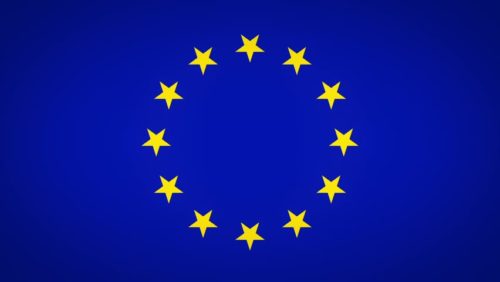Finland — Action Plan for Combating Racism and Promoting Good Relations between Population Groups (2022)
It is stated in the Government Programme of Prime Minister Marin’s Government that racism and discrimination will be combated in all sectors of society and that the Government will draw up an action plan against racism and discrimination. Furthermore, it is stated that the Government will draw up a broad-based action plan for promoting good relations between population groups during the government term to supplement the Government Integration Programme. The Government Action Plan for Combating Racism and Promoting Good Relations between Population Groups has been drawn up to meet these two objectives set in the Government Programme.
On 21 March 2020, a broad-based preparatory working group was appointed to prepare the Action Plan. The working group included representatives from all ministries and the Prime Minister’s Office, the Association of Finnish Local and Regional Authorities, the Sámi Parliament, the Advisory Board for Ethnic Relations, the Advisory Board on Romani Affairs, the Swedish Assembly of Finland, the Human Rights Centre and the Non-Discrimination Ombudsman. The working group will continue its operations until the end of 2023, guiding and directing the implementation and evaluation of the Action Plan.
The Action Plan is based on a situation assessment, and it includes eight key objectives and 52 measures to be carried out in different branches of government in 2021–2023.
Aims
The Action Plan aims to dismantle structural inequalities in society, promote non discrimination in the Finnish working life, strengthen the authorities’ equality competence, raise awareness of racism and its various forms, and develop research and data collection related to racism.
The measures of the action plan aim to enhance current measures, unite operators from all levels and improve the opportunities for people belonging to a racial or ethnic minority to have their voices heard.
Measures
- Review the potential for reinforcing the obligation to promote equality as part of the Non-discrimination Act’s partial reform (2021–2022).
- Produce electronic tools for promoting equality (education, process guide, and webinars, 2021–2022).
- Appoint a cross-administration anti-racism expert group as part of the Government’s fundamental and human rights work structures (2022)
- Conceptualise a model for a national center of expertise on work against discrimination and hate crimes, and execute an operational pilot (coordination, communication, data collection, and training between operators, 2021–2023).
- Prepare general instructions for ministries regarding the promotion of equality in an administrative sector’s performance guidance (special focus areas: improving equality abilities and increasing the diversity of personnel). Implement ministry training to deploy the performance guidance instructions (2021–2022).
- Review the quality and effectiveness of the equality plans of youth sector organisations. Use the review to prepare recommendations and a monitoring model for equality plans, also for use by other ministries (2021–2022).
- Clarify and reinforce the regulations concerning the promotion of good population relations as part of the reform of the Act on the Promotion of Immigrant Integration (2021-2022).
- Produce a guide for municipalities on promoting good population relations as part of integration programs and equality planning (2022).
- Produce a dedicated summary of the action plan for municipalities, focusing on information about matters concerning the local level and the training and materials available to municipalities. Advertise the package at the Kuntamarkkinat exhibitions in 2021 and 2022 (2021).
- Increase diversity leadership skills in municipalities by increasing relevant training and deploying related materials (2021–2023).
- Produce local monitoring indicators for hate crimes and hateful acts, as well as a guide for municipalities and other local operators (2021).
- Support the role of regional Advisory Boards for Ethnic Relations as local experts: provide additional resources to 1) organise training for different target groups, 2) produce information for authorities about the situation with racism, 3) implement communication measures across Finland, 4) organise local or regional talks about good population relations in connection with topical local or regional matters (2021–2022).
- Strengthen equality and anti-racism ability in urban planning. Deploy the results of the Helsinki pilot at the national level as part of the Neighbourhood Program. Organise a national seminar (2022)
- Create base training materials for ministries. Topics: the different forms of impacts of racism and promoting equality as part of official duties (2021).
- The ministries will organise training for the key target groups of their administrative sectors (Authorities responsible for regional public transport, other administrative sector based on the online training for police, municipal housing departments, employment office counselors; Prosecutors/National Cours Administration, Finnish Defence Forces personnel, 2022).
- Develop and test pilot training of regional and local authorities on Sámi matters, modeling for further use (2022–2023).
- Plan, produce, and distribute comprehensive anti-racism and non-discrimination online training package for social and healthcare service personnel (2022–2023).
- Develop new ways to promote the inclusion of minority youths (Roma youths, for example) as part of monitoring Findland’s human rights obligations (2022–2023).
- Include measures to prevent discrimination in recruitment and promote anonymous recruitment across the training, guides, campaigns, and solution workshops of the working life diversity program. Plan, if needed, an additional measure based on the results of the Towards non-discrimination in Working Life report (2022).
- Improve the Government’s diversity leadership and support all of the Government personnel’s skills (cover the topic in induction and training, use the Government intranet databank, 2022–).
- Plan an EU project against discrimination in recruitment (2022).
- Carry out a media campaign (working life diversity program) for employers to advertise the training and other tools available to employers (2021).
- Produce diversity leadership and non-discrimination tools for employers and employment: diversity leadership quality indicators, workshop materials, website, and a virtual guide (2021–2022).
- Implement a Government TET campaign to promote equal practical training for Roma youths and other ethnic minority youths (2022).
- Pilor project (at the planning stage): introduce the acquisition of language skills during civil service into career path thinking (employer support un the form of unpaid leave of absence for training or training organised by the employer, for example). Conduct a pilot with groups who are educated but lack proficiency in language (2021–2022).
- Diversity promotion project in the police organisation, continued as part of the official duties after the project ended in 2020 (2021).
- Non-discriminatory police work training at all police departments, especially immigrant surveillance (2021).
- Find means to improve equality in security firm operations (training and development of curricula (2021–2022).
- Produce material (fliers, posters, etc.) for police departments about hate crime indicators (antisemitic, islamophobic, and others) and hate crime statistics (2022).
- Training package and events (5–10) on hate speech and how to respond (ministries, municipalities, and other authorities, 2021–2022).
- Training package and event for social media moderators about the different forms of hate speech and the related legislation (2022).
- Raise the awareness of local politicians about hate speech and improve their ability to clamp down on it: online training for new local councilors (2021–2022).
- Organise medial literacy training for public administration employees, produce information about the current state, development areas, and strengths of media literacy promotion among adults. Use the information to prepare guidelines for future adult media literacy work. Produce materials and operating models to support the promotion of adult media literacy (2021–2021).
- Establish a national contact point, especially to help applicants of the Citizens Equality, Rights and Values program (2021–2027).
- Organise funding applications to support the inclusion of civil society operators in anti-racism efforts (Applications May 2021).
- Introduce the promotion of anti-racism activities as a criterion for eh 2022 equality grants for sports organisations (2022).
- Start a VN TEAS project to review existing national sources of funding and their accessibility and need for development (2022).
- Organise a media campaign (social media and Yle) about anti-racism for the general public (2021–2022).
- Estbalish a website (as part of the Yhdenvertaisuus.fi website) as an anti-racism databank (2021).
- Implement an anti-racism campaign (March 2022, March 2023).
- Conceptualise and implement national diversity days for experts and the general public (planning 2021, implementation 2022).
- Create a compass tool to support intercultural dialogue and diversity efforts at art and culture institutions and organisations (2021–).
- Add the supporting of interaction between children and young people of different backgrounds in the grant criteria for children’s culture (2022).
- Prepare an equality planning guide for basic education and organise training events to deploy the guide (2021–2022).
- Inform teachers and other education professionals of good practices for promoting equality: 1) collect information on the Yhdenvertaisuus.fi website, 2) organise good practices seminars as part of the Educa 2022 exhibition, the Kuntamarkkinat exhibition, and the municipal welfare seminar of 2022 (preparation 2021, implementation 2022).
- Introduce ant-racism and equality planning as criteria for further training in 2022 (2022).
- Provide resources for organisations as low-threashold service providers (support and information) for victims of racism and hate crimes: training and informational materials (2021–2023).
- Create a monitoring model for structural racism: workshops, data collection, and preliminary evaluation (including research review of racism in Finland’s history and its echoes in modern society (2021–2022).
- Promote the Government’s production of information regarding racism and its impacts (2021–2022).
- Engage in extensive dialogue with stakeholders and about racism-related data collection. Themes: improving the availability of disaggregated data on the realisation of non-discrimination for ethnic minorities (including the Sámi and Roma), the historical dimension of racism in Finland, and human rights principles in data collection. Organise five round-table talks and produce national recommendations (2022).
- Develop the monitoring the the Leave No One Behind (LNOB) principle as part of racism and discrimination monitoring and the monitoring of sustainable development (2021–2022).
- Carry out a follow-up study of hate speech impacts and manifestation with a particular focus on the effects of the COVID-19 crisis (start-up 2021, ready 2022).



 NOA is co-funded by the Rights, Equality and Citizenship Programme (2014-2020) of the European Union
NOA is co-funded by the Rights, Equality and Citizenship Programme (2014-2020) of the European Union